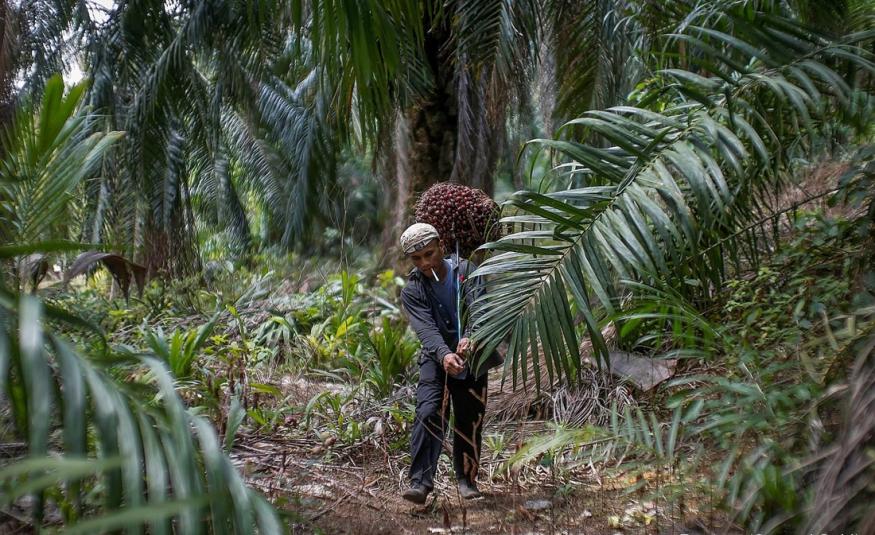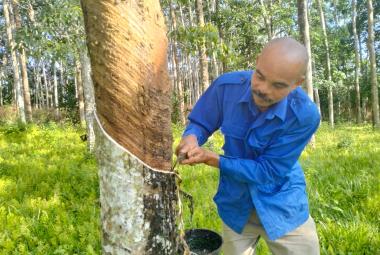By Zaidi Isham Ismail
Halim Abbas is a proud Felda settler.
Why wouldn't he be. He was one of Felda's 112,265 pioneering settlers at Felda Mempaga Satu in Bentong, Pahang in 1975.
When the late prime minister Tun Abdul Razak Hussein first opened Felda's land scheme in Lurah Bilut in 1956 also in Pahang, everybody wanted to be a settler.
It was a big thing to be an oil palm smallholder at the time as most Bumiputera settlers lived below the poverty line.
Smallholders get to own a plot of land of their own, a house and be part of the Felda extended family which was possibly the world's largest plantation land scheme ever to be devised at the time.
And so the settlers prospered over the decades and made a decent income living off the land.
In 2012, another milestone unfurled at the government-owned agency.
Felda decided to float its shares in 2012 on Bursa Malaysia to share a piece of the profit pie with the rakyat and especially with the shareholders.
And to do that, Felda established Felda Global Ventures (FGV) tasked to generate business and churn profitability to its parent Felda.
It was a proud moment for Felda settlers when FGV shares were listed at RM4.55 apiece and they all got to be shareholders.
FGV's listing was the world's second largest initial public offering at the time after Facebook and everybody was excited and beaming with pride.
FGV's annual general meeting was also the biggest ever seen in corporate Malaysia and had to be held at the Putra World Trade Center to accommodate thousands of settlers who came by the busloads.
Smallholders had a slice of the pie and were taken care by the government so much so, that the agency had a special place in the government parked under the Prime Minister's Department.
Thus it was a heartbroking moment to see this week when Felda announced it was taking back its leased land of some 350,000 ha to FGV as part of its revival plan.
Felda is now mired in a RM10 billion debt, its relation with FGV is frosty and the government announced a RM10 billion government guaranteed bonds to turn Felda around back to profitability.
How did it come to this?
How could Felda, a plantation empire with over 70 subsidiaries delving in 12 countries consistently generating RM2 billion to RM3 billion revenue a year descend into such dire straits?
To be fair to Felda and FGV, they were pressured by weak crude palm oil prices for the longest time.
Felda and FGV can partly blame poor crude palm oil prices if they want to.
But the fact of the matter is, they can't blame soft crude palm oil prices for their downfall most of the time and all the time.
There are many oil palm companies in Malaysia and Indonesia and they are all battered by the downcycle of crude palm oil prices.
But other oil palm firms persevered and bucked the trend registering profits at a time when Felda and FGV continue to rake in losses.
Felda and FGV have been beset with numerous legacy issues which it can't wiggle out in a day.
Case in point, its aging oil palm trees of over 25 years which it can't replant without being heckled by the smallholders.
Smallholders won't replant as they need to harvest the fresh fruit bunches to survive.
Felda and FGV in turn, can't force the smallholders to replant or risk it being turned into a political issue halting the replanting initiative to an impasse.
And this brings us to the numerous political interferences over the years, of which these political figures meddled in Felda and FGV's affairs ever since their establishment.
Felda and FGV have been used as the political horse, fodder and instrument by so many politicians to further their political ambitions.
This is understandable as Felda land schemes constitute a large portion of the parliamentary seats all over the nation.
Naturally, it is of little wonder that Felda and FGV have been used as political sweeteners to propel the selfish political ambitions of a select few.
And now, Felda and FGV is mired in a quagmire requiring a RM10 billion bailout.
When will the politicians learn? When will they stop using their positions to be appointed in Felda or FGV boards to pursue their vested interests?
Felda and FGV deserve to be run and managed as professional corporate entities by professional financial experts and not by politicians who see the positions in Felda and FGV as their birthright and as a reward for their years in public service.
Every decision made, must be in the interest of the stakeholders, the smallholders and their 2-3 million family members already spanning across third and fourth generations by now.
The government did the right thing to axe the land lease agreement with FGV as the latter had failed to deliver.
Although highly unlikely, let's hope that the RM9 billion sukuk will be the last bail out for Felda.
It's time for Felda to regain its former glory and the management must strive to become one of the world's top five agribusiness firms. - DagangNews.com

The writer is former NST Business assistant editor










